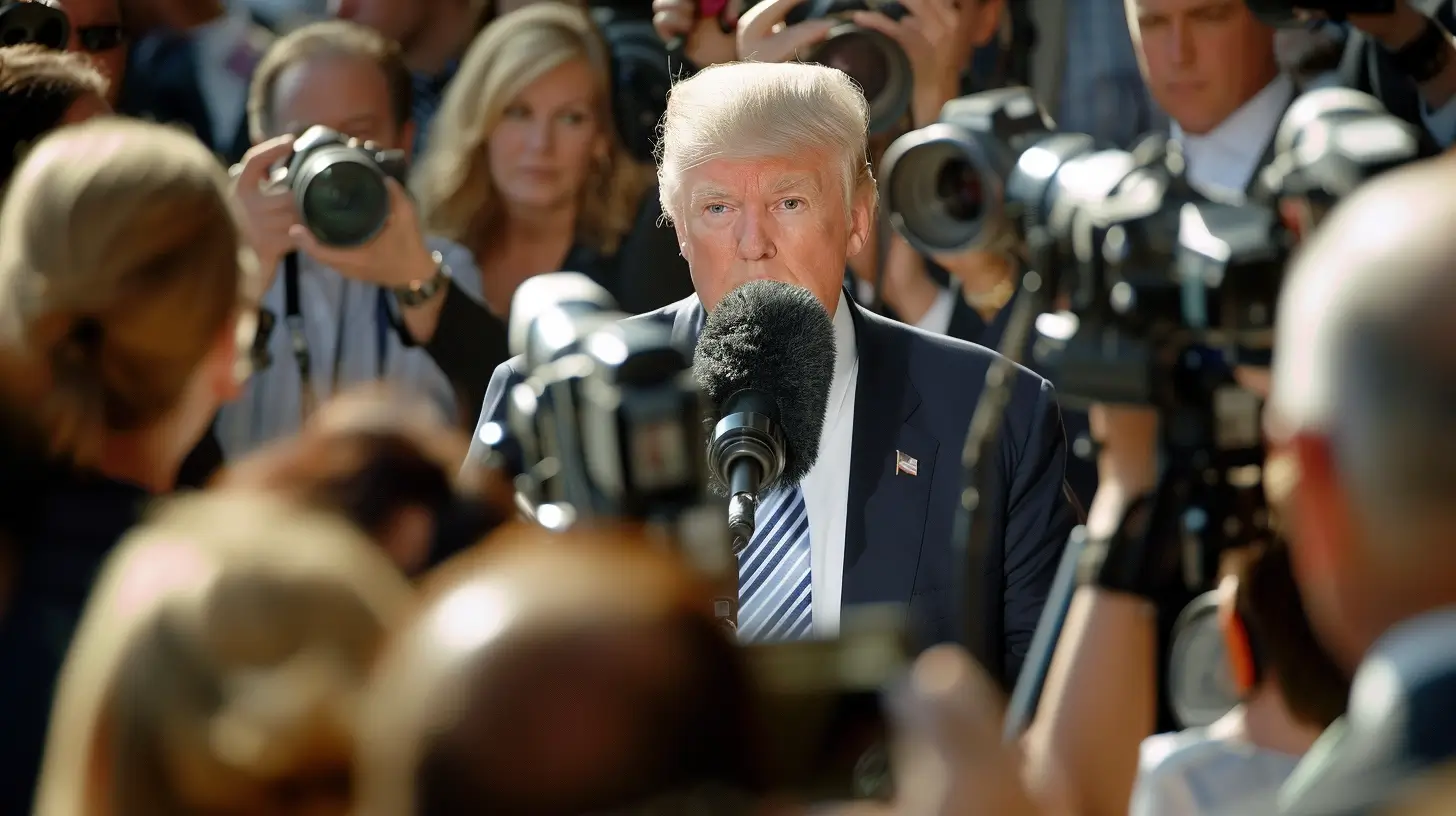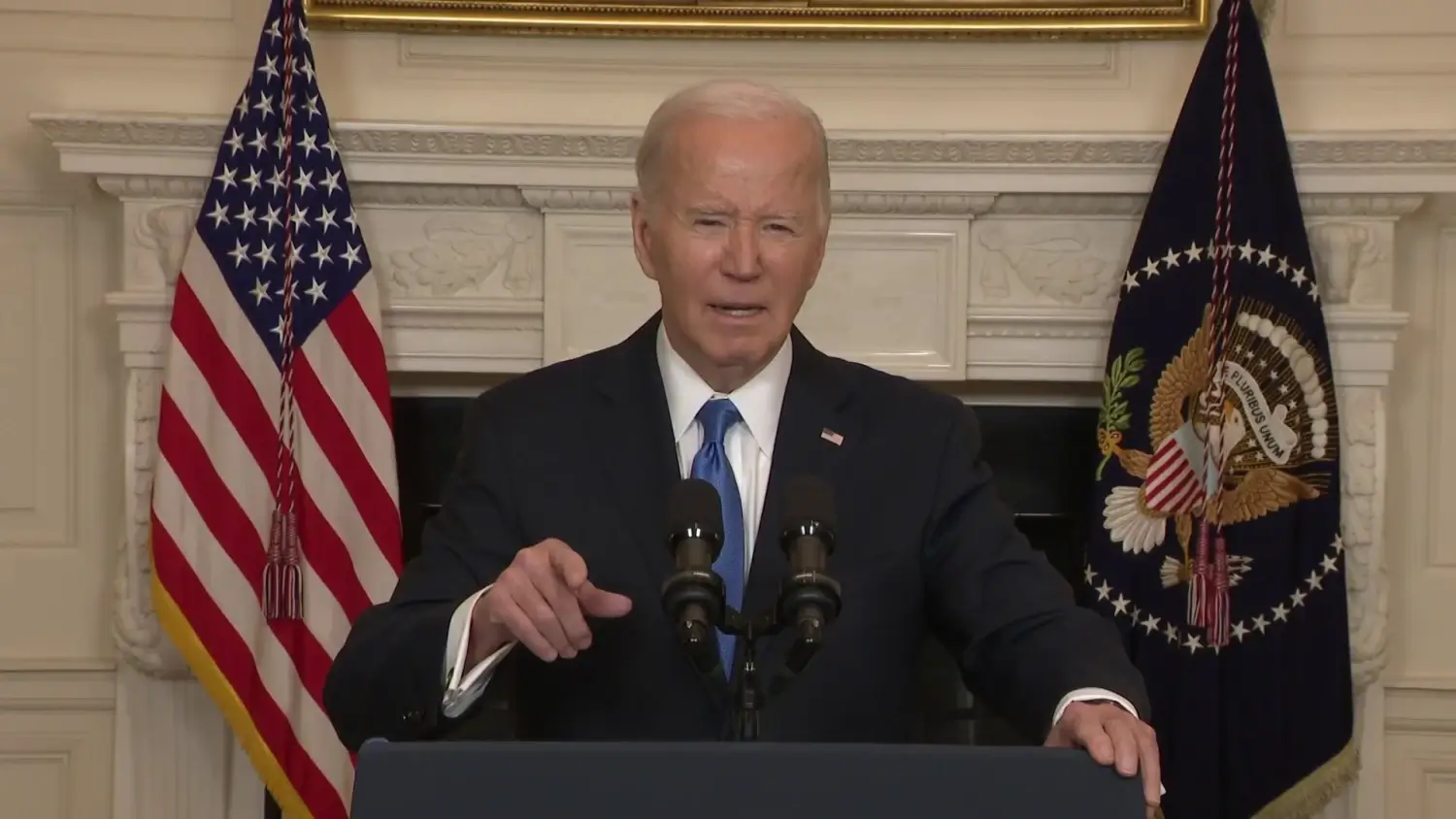Trump’s NATO remarks: President Joe Biden did not mince his words when he criticized former President Donald Trump’s remarks on NATO, calling them “dangerous.” In a compelling rebuke, Biden expressed his dissatisfaction with Trump’s stance on the North Atlantic Treaty Organization, suggesting it undermined the fundamental principles of collective security.
The former president’s comments had garnered attention for their perceived dismissal of NATO’s importance and the potential implications for international relations. Biden’s strong condemnation underscores his commitment to revitalizing alliances and restoring America’s standing on the global stage. As the new administration takes charge, it is clear that Biden intends to adopt a different approach, one that renews America’s commitment to mutual defense and strengthens collaboration with its NATO allies. This sharp contrast in viewpoints highlights the shift in priorities and ideals brought about by the transition of power in the United States. Moving forward, Biden’s critique of situs slot yang resmi Trump’s NATO remarks serves as a powerful reminder of the significance that multilateralism holds in shaping global affairs.

Page Contents
- 1 Trump’s NATO remarks: Overview of NATO (North Atlantic Treaty Organization)
- 2 Trump’s remarks on NATO
- 3 Biden’s response to Trump’s remarks
- 4 Trump’s NATO remarks: Analysis of Biden’s criticism
- 5 The impact of Trump’s remarks on NATO
- 6 Biden’s stance on NATO
- 7 Comparison of Biden and Trump’s foreign policy regarding NATO
- 8 The importance of strong alliances for global security
- 9 Author
Trump’s NATO remarks: Overview of NATO (North Atlantic Treaty Organization)
NATO, the North Atlantic Treaty Organization, is an intergovernmental military alliance formed in 1949. It was established as a collective defense pact among North American and European nations to counter the Soviet Union’s influence during the Cold War. NATO’s main purpose is to ensure the security and defense of its member states through collective efforts and mutual assistance.
The alliance, consisting of 30 member countries, operates on the principle of collective defense, as enshrined in Article 5 of the NATO treaty. This article states that an armed attack against one member shall be considered an attack against all, and each member is obliged to assist the attacked member. NATO has played a crucial role in promoting stability and security in Europe, as well as fostering cooperation among its members in various areas, including defense, intelligence sharing, and crisis management.
Trump’s remarks on NATO
During his presidency, Donald Trump made several controversial remarks regarding NATO that raised concerns among allies and experts. Trump criticized NATO member countries for not meeting their financial commitments to defense spending, often referring to them as “free riders.” He argued that the United States was disproportionately shouldering the burden of funding NATO’s operations and demanded that other members increase their defense budgets.
Furthermore, Trump questioned the relevance of NATO in the modern era, suggesting it was outdated and no longer necessary. He raised doubts about the alliance’s efficacy and expressed skepticism about the value of U.S. involvement in multilateral agreements. Trump’s remarks on NATO drew criticism from both domestic and international audiences, who saw them as undermining the alliance’s unity and effectiveness.
Biden’s response to Trump’s remarks
President Joe Biden, a staunch believer in the importance of alliances and multilateralism, did not shy away from criticizing Trump’s remarks on NATO. Biden, in stark contrast to his predecessor, reaffirmed the United States’ commitment to NATO and emphasized its significance in ensuring collective security and stability.
In a strong rebuke, Biden called Trump’s remarks “dangerous” and highlighted the potential consequences of undermining NATO’s unity and purpose. He stressed the importance of NATO as a cornerstone of America’s foreign policy and expressed his intention to rebuild trust and strengthen alliances with NATO member countries.
Trump’s NATO remarks: Analysis of Biden’s criticism
Biden’s criticism of Trump’s NATO remarks reflects his broader approach to foreign policy, which prioritizes collaboration and cooperation with allies. By denouncing Trump’s dismissive attitude towards NATO, Biden aims to restore faith in the alliance and reaffirm the United States’ commitment to its collective defense obligations.
Biden’s critique can be seen as a strategic move to signal a break from the previous administration’s approach. By publicly condemning Trump’s remarks, Biden aims to demonstrate his administration’s commitment to revitalizing alliances and reestablishing the United States’ leadership role in global affairs.
The impact of Trump’s remarks on NATO
Trump’s remarks on NATO had a significant impact on the alliance and its member countries. The skepticism and criticism expressed by the former president raised questions about the solidarity and unity of NATO, causing concern among allies.
The uncertainty created by Trump’s remarks led some NATO member countries to increase defense spending to meet the agreed-upon targets, in an effort to appease the United States. However, this also led to tensions within the alliance, as some member countries felt pressured and questioned the fairness of burden-sharing.
Moreover, Trump’s comments fueled speculation about the United States’ commitment to NATO’s collective defense obligations. Allies were left uncertain about the level of support they could expect from the United States in the event of an armed attack. This uncertainty had potential implications for deterrence and the overall credibility of the alliance.
Biden’s stance on NATO
President Joe Biden’s stance on NATO can be characterized as a reaffirmation of the United States’ commitment to the alliance and a return to traditional foreign policy norms. Biden recognizes the importance of NATO in addressing emerging security challenges and maintaining stability in Europe and beyond.
Biden has emphasized the need for NATO member countries to meet their defense spending commitments, as agreed upon in previous NATO summits. However, he has also acknowledged the importance of burden-sharing and fair contributions, taking into account the diverse capabilities and economic circumstances of member countries.

Comparison of Biden and Trump’s foreign policy regarding NATO
The contrasting foreign policy approaches of Presidents Biden and Trump regarding NATO highlight the divergent priorities and ideals of their respective administrations.
While Trump’s approach was characterized by skepticism and a transactional view of alliances, Biden’s foreign policy places emphasis on the importance of alliances and multilateral cooperation. Biden seeks to rebuild trust with NATO allies and foster collaboration on shared security challenges, such as countering hybrid threats and addressing cyber warfare.
Furthermore, Biden’s commitment to NATO reflects a broader vision of the United States as a global leader, working closely with allies to tackle global challenges, promote democratic values, and uphold international norms.
The importance of strong alliances for global security
President Joe Biden’s critique of former President Donald Trump’s NATO remarks serves as a powerful reminder of the significance that strong alliances hold in shaping global affairs. Biden’s commitment to revitalizing alliances, including NATO, reflects his belief in the importance of collective security and multilateral cooperation.
As the new administration takes charge, Biden’s approach signals a departure from the skepticism and transactional approach of the previous administration. By reaffirming America’s commitment to NATO, Biden aims to restore trust and strengthen collaboration among member countries, recognizing that strong alliances are vital for addressing global security challenges effectively.
In a rapidly evolving world, where threats transcend borders and require collective responses, the importance of strong alliances, such as NATO, cannot be overstated. Together, nations can pool their resources, share intelligence, and coordinate efforts to maintain peace, stability, and prosperity.
If you found this analysis insightful, we invite you to delve further into the intersection of culture and politics by exploring our article on Bollywood. There, we uncover how this vibrant film industry reflects and influences societal changes, offering a unique lens through which to view global trends and cultural diplomacy.









